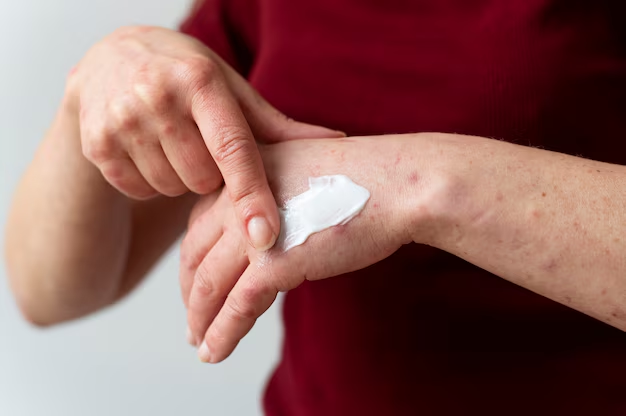Aquaphor and Eczema: A Comprehensive Guide to Skin Relief
Eczema, a relentless skin condition characterized by itchy, inflamed skin, affects millions worldwide. For many, finding a remedy that offers genuine relief can seem elusive. Among the myriad of over-the-counter solutions, Aquaphor emerges as a popular choice. But does it truly help alleviate eczema symptoms? Let’s delve into the facts and explore how Aquaphor can play a role in managing eczema flare-ups.
Understanding Eczema
What Is Eczema?
Eczema, or atopic dermatitis, is a chronic skin disorder that leads to red, itchy, and inflamed skin. While it primarily affects children, adults are not immune. It's often a result of genetic factors, immune system activation, or environmental triggers. Common symptoms include:
- Itchiness: Persistent and often intense.
- Inflammation: Swelling and redness.
- Dry, scaly patches: Common around the elbows, knees, and face.
Triggers and Vulnerabilities
Various factors might trigger or worsen eczema:
- Allergens: Such as pollen, dust mites, or pet dander.
- Irritants: Soaps, detergents, or fragrances.
- Climate: Dry and cold weather.
- Stress: Emotional stress can exacerbate symptoms.
Understanding these triggers can be crucial in managing the condition.
Aquaphor: An Overview
What is Aquaphor?
Aquaphor is a well-known brand that provides a range of skin care products, but it's the Aquaphor Healing Ointment that often draws attention for its moisturizing properties. Composed mainly of petrolatum (a skin protectant), it also includes mineral oil, ceresin, and lanolin alcohol. These ingredients work in tandem to create a protective barrier on the skin.
How Does Aquaphor Work?
Aquaphor is praised for its occlusive properties, meaning it locks in moisture while providing a protective layer over the skin. This protective barrier helps prevent the skin from losing water, keeping it hydrated and lessening the potential for eczema flare-ups. Key benefits include:
- Moisture retention: Its composition helps keep the skin hydrated.
- Barrier protection: Shields skin from irritants.
- Soothing properties: Reduces inflammation and irritation.
Does Aquaphor Help Eczema?
Benefits of Using Aquaphor for Eczema
Aquaphor can be a beneficial option for individuals with eczema due to its hydrating and protective qualities. The reasons many choose Aquaphor include:
- Hydration: Eczema-affected skin is often dehydrated. Aquaphor provides a significant moisture boost.
- Soothing Effect: Reduces itching and discomfort which is essential for eczema sufferers.
- Protective Barrier: Shields skin from potential irritants and allergens, mitigating flare-ups.
User Experiences and Anecdotes
Many individuals with eczema report positive experiences using Aquaphor. For some, it's a staple in their daily skin routine. Users often find it especially beneficial during colder months when skin tends to dry out more quickly.
"Using Aquaphor has been a game-changer for my eczema. The relief it provides from itching is unmatched," shares a regular user.
Limitations and Considerations
While Aquaphor provides many benefits, there are some considerations:
- Not a Cure: While it can manage symptoms, Aquaphor is not a cure for eczema.
- May Not Suit Everyone: Contains lanolin alcohol which might not be suitable for individuals with specific allergies.
Maximizing the Benefits of Aquaphor for Eczema
Application Tips
For optimal results when using Aquaphor for eczema, consider the following:
- Use Regularly: Apply post-bathing to lock in moisture.
- Target Specific Areas: Focus on particularly dry or inflamed areas.
- Patch Testing: New users should perform a patch test to ensure there's no adverse reaction.
Complementing Your Skincare Regimen
Aquaphor works best when incorporated into a comprehensive skincare routine:
- Gentle Cleansing: Use mild, eczema-friendly cleansers.
- Humidifiers: Maintain indoor humidity levels to prevent skin from drying out.
- Diet and Lifestyle: Notice foods and lifestyle choices that impact your skin health.
Related Topics to Consider
Other Over-The-Counter Options
Besides Aquaphor, several other products might benefit eczema sufferers:
- CeraVe Moisturizing Cream: Known for its ceramide-rich formula that restores the skin's barrier.
- Eucerin Eczema Relief Cream: Specifically formulated to cater to eczema-prone skin.
Natural Remedies and Alternatives
Some people explore natural options alongside Aquaphor for eczema relief:
- Coconut Oil: Offers antimicrobial and moisturizing benefits.
- Aloe Vera: Known for its soothing properties.
When to Seek Professional Help
If eczema symptoms persist or worsen, consulting a dermatologist is advisable. Persistent cases might require prescription treatments or a tailored skin care plan.
Navigating Eczema with Confidence
While navigating eczema can be challenging, understanding the tools at your disposal — like Aquaphor — can make the journey more manageable. By integrating effective products, recognizing triggers, and being mindful of skincare regimens, individuals can alleviate symptoms and improve skin health significantly.
In summary, Aquaphor can be a valuable part of an eczema management strategy. Its ability to hydrate and protect the skin makes it a favored choice among many dealing with this condition. However, it's essential to remember that individual experiences vary, and finding the right combination of products and practices is key to controlling eczema effectively.
Key Takeaways
- Moisturize Regularly: Consistent hydration is critical.
- Monitor Triggers: Be aware of what exacerbates your eczema symptoms.
- Consult When Needed: Professional guidance can provide additional strategies for severe cases.
Quick Summary
- 🌊 Hydration Focus: Keep skin moist and barriers strong.
- 🛡️ Protective Layer: Use products like Aquaphor for added protection.
- 🔍 Be Observant: Track triggers and symptoms to adjust care approach.
- 💡 Seek Advice: Contact a dermatologist for persistent issues.
Navigating eczema involves a mix of knowledge, patience, and strategic skin care choices. With the right approach, relief is within reach.

